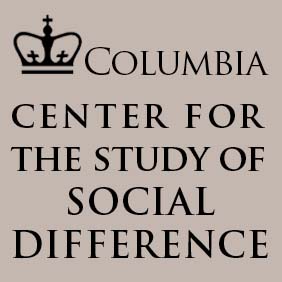2016 Call for Proposals

CSSD welcomes proposals for a new project that would begin in 2016. Proposals may be submitted for consideration by any Columbia or Barnard faculty member(s) whose project aligns with the mission of CSSD.
The Center for the Study of Social Difference at Columbia University (CSSD) promotes innovative interdisciplinary scholarship on the role of gender, sexuality, ethnicity, and race in global dynamics of power and inequality. As the umbrella organization and research hub for five interdisciplinary programs, CSSD brings together faculty in humanities, law, social science and the arts, to investigate problems of social, economic, and cultural inequality. CSSD working groups challenge the disciplinary divides among the humanities, the arts, and the social sciences by asking not only how historical categories of social difference intersect on the level of identity, but also how these categories shape institutions, modes of knowing, acts of representation, and processes of globalization. The Center creates the conditions for scholars, artists and practitioners to work collaboratively on themes of common interest and to set intellectual agendas for the future.
CSSD welcomes proposals for a new project that would begin in 2016. Proposals may be submitted for consideration by any Columbia or Barnard faculty member(s) whose project aligns with the mission of CSSD (please see our website: socialdifference.columbia.edu), although preference will be given to faculty affiliated with one or more of CSSD’s member centers and institutes. This year we particularly welcome proposals that address the theme, broadly conceived, of “Reframing Gendered Violence.”
Funding is in the amount of $35,000 over two years with the possibility of $15,000 for a third year, contingent on working group interest and the availability of Center funds. CSSD seeks projects that are interdisciplinary in nature and favors proposals from an already-constituted core working group (usually 5-8 people). Center support is seed money to enable working groups to get off the ground; it is the expectation of the Center that all projects will also seek additional funding.
Center projects typically run for three years, but 2-year projects will also be considered. In 3-year projects, year 1 concentrates on focused project development, including the constitution of a regional and/or international working group, exploratory seminars, and guest lectures or workshops. Year 2 involves the most intensive intellectual work, featuring regular meetings of the working group, and the active participation of fellows and affiliates. Year 3 is often dedicated to post-project planning and dissemination of the project’s work through a conference, the publication of conference proceedings and/or edited collections of working group scholarship, or online publication of syllabi or other curricular materials.
Current working group projects include “The Digital Black Atlantic,” “Gender and the Global Slum,” “Social Justice After the Welfare State,” “Pacific Climate Circuits: Moving Beyond Science, Technology, Engineering, and Economics,” “The Legacy of Bandung Humanisms,” and “The Rural-Urban Interface: Gender and Poverty in Ghana and Kenya, Statistics and Stories.” Please see our website for detailed descriptions of all our projects and for additional information about the Center.
CSSD project support budgets may be used by project directors at their discretion. However, budgets typically include the following: Course relief for a project director (one course per year for two years, alternating in the case of co-project directors); stipends for two graduate student participants and one graduate assistant responsible for program support; working group meeting lunches and/or breakfasts; limited support for visiting scholars, public conferences and publications. Project directors should be prepared to work with the Center to seek additional funding sources.
Project proposals should not exceed five double-spaced pages and should include a project description, a provisional budget, a short CV for each tentative working group member, and a detailed work plan for group meetings, public events, and the dissemination of project research. Proposals should also describe a plan for soliciting and adjudicating applications for working group membership from the wider University community. Any anticipated curricular or pedagogical outcomes of the proposed project should be noted.
Proposals should be directed to CSSD Associate Director Laura Ciolkowski (lec30@columbia.edu), by or before March 1, 2016. A sample CSSD project proposal is available by request. Projects will be selected by the CSSD Executive Committee. All applicants will be notified by April 11, 2016.

